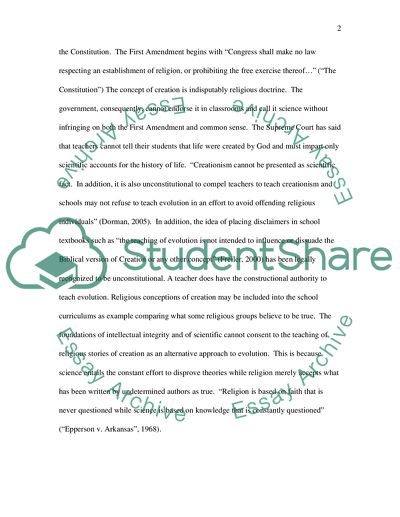Cite this document
(“Should Evolution Be Taught In Public Schools Essay”, n.d.)
Retrieved from https://studentshare.org/creative-writing/1578274-should-evolution-be-taught-in-public-schools
Retrieved from https://studentshare.org/creative-writing/1578274-should-evolution-be-taught-in-public-schools
(Should Evolution Be Taught In Public Schools Essay)
https://studentshare.org/creative-writing/1578274-should-evolution-be-taught-in-public-schools.
https://studentshare.org/creative-writing/1578274-should-evolution-be-taught-in-public-schools.
“Should Evolution Be Taught In Public Schools Essay”, n.d. https://studentshare.org/creative-writing/1578274-should-evolution-be-taught-in-public-schools.


